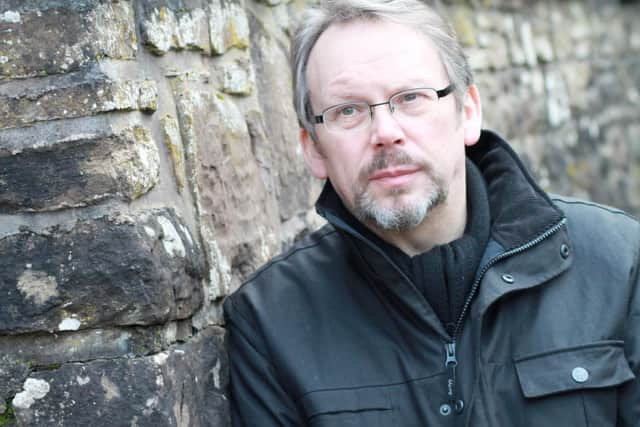The book that most inspired me to write was a library book - Craig Russell
There have been very many influences on me as a writer; one of the earliest of these was the American author Ray Bradbury. Bradbury grew up in the Depression-hit Midwest, and his family could not afford to send him to college. The young Bradbury’s solution was to spend three days a week in his local library. It was an experience that left him with an almost religious reverence for libraries and their role in society. In his dystopian novel Fahrenheit 451, libraries were the first to burn. He famously said: “Without libraries, there is no civilization”.
I’m pretty much of a mind with old Ray. Six years ago, I won the CWA Dagger in the Library—a huge honour for me, and one laden with significance. For as long as I can remember, I always wanted to be a writer. But the moment that vague ambition coalesced into an absolute certainty was when I read Barry England’s Figures in a Landscape as a teenager.
Advertisement
Hide AdAdvertisement
Hide AdI was recently asked by the US publisher of Figures in a Landscape to provide an introduction to their edition, which I duly did. It was a strange full-circle moment for me, because they used the first edition cover art. I remembered that hardback cover so well. The other thing I remembered was the library insert, stamped with return dates, inside the front cover.
The book that most inspired me to write was a library book.
I have many other reasons to value libraries. My father began to lose his sight in later life and benefitted first from large-print books, then audiobooks, supplied by his local library. Similarly, when my mother became less mobile, the visiting service from the local library became not just a convenience, but a lifeline.
Libraries open up the world, the universe, to people. You could argue that the internet does the same thing—something I would contest strongly. Yes, we live in an information technology-driven world shrunk by universality of connection and access, but it could be argued that information without understanding is not knowledge. It is incoherent. White noise. Chaos.
Libraries aren’t just another information source, they are knowledge hubs. And, above all, they are centred in real—not virtual—communities. We need them more than ever. And my plea isn’t just for libraries, but for librarians: professionals who provide a very definable, critical set of skills. Cutbacks to public services at national and local government levels mean that the vast majority of libraries are reliant on the goodwill of volunteers. Volunteers play a vital part in maintaining our libraries and their services, but we need professional librarians to connect with communities.


We must support libraries. If we don’t, Bradbury’s vision of burning books may not become a reality, but abandonment and neglect will do the job just as well.
Craig Russell is author of Hyde (Little, Brown) which won the McIlvanney Prize 2021.
A message from the Editor:
Thank you for reading this article. We're more reliant on your support than ever as the shift in consumer habits brought about by coronavirus impacts our advertisers.
If you haven't already, please consider supporting our trusted, fact-checked journalism by taking out a digital subscription.
Comments
Want to join the conversation? Please or to comment on this article.